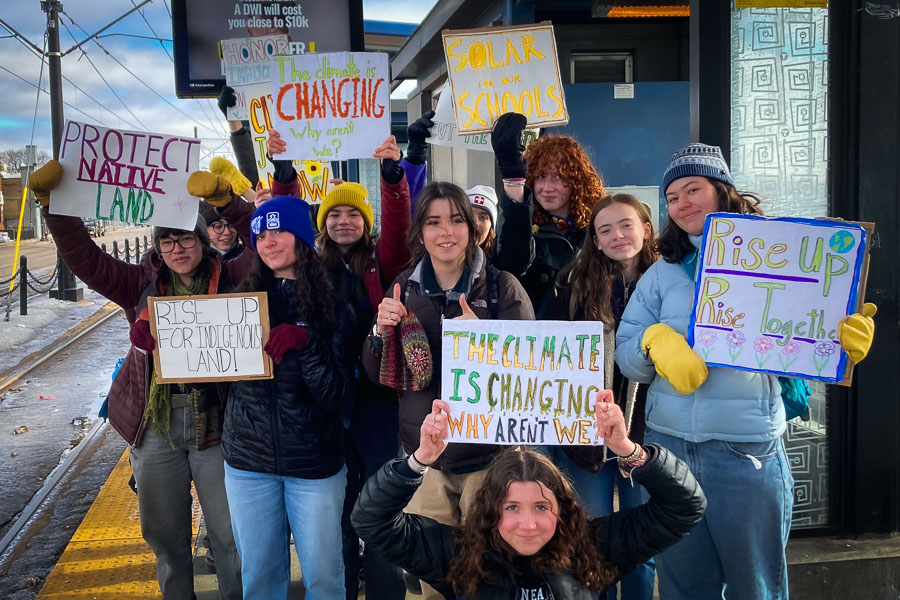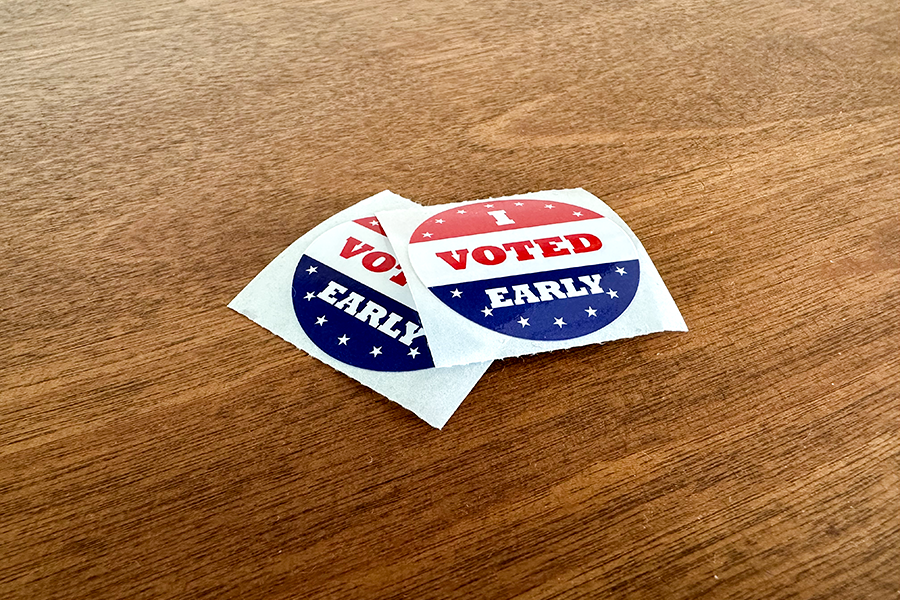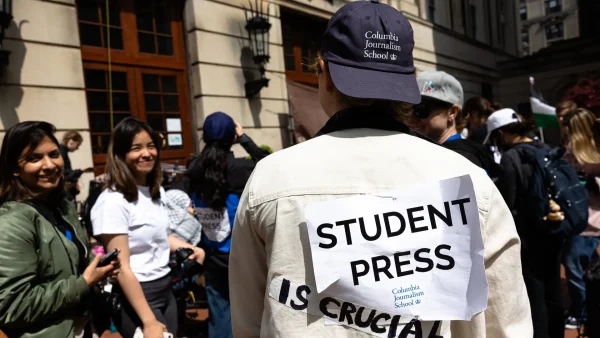South’s Green Tigers attend Rise and Repair rally at State Capitol
South high’s Green Tigers on their way to the Capitol to support climate justice solutions and indigenous reparations. “We want to listen to Indigenous people about what is being done to the land and what will happen to all of our futures, by being here we can show our support and advocate for change in our world,” says Macy Gearhart, a sophomore at South and part of Green Tigers.
March 23, 2023
A delegation of organizations like Honor the Earth, Minnesota Interfaith Power and Light, and Native Sun Community Power Development, have made a call to action for Indigenous peoples rights and climate change, through the rally Rise and Repair. The rally took place on Wednesday, February 15, 2023 at the Minnesota state capitol building from 11 am to 4 pm. South High’s own Green Tigers club, attended this rally with the purpose of supporting indigenous peoples rights and encouraging public action against climate change. With pizza and picket signs alike, demonstrators gathered to advocate/demand that legislators honor indigenous sovereignty and treaty rights, as well as take the green path forward regarding energy and climate justice.
Recently Minnesota came into possession of a 17.6 billion dollar budget surplus that is to be used by the governor and state lawmakers during the 2023 legislative session to make changes around Minnesota. The surplus has been amplified to a record high because of higher tax collections and lower than anticipated spending. Additionally, there’s a surplus of federal funds from the IRA, IIJA, and the CHIPS and Science Act, making it the biggest investment the US government has ever made in climate change. With all of these funds and available money, activists and organizations are looking to take political action on climate change and indigenous rights while the opportunity is available.
The Rise and Repair rally had two main visions; honoring indigenous sovereignty through reparations, and climate justice. “We have to make an urgent transition to a just and sustainable economy,” says Ashley Fairbanks, the creative director for the 100% community campaign. She says that with IRA funding, we now have an abundance of money to do the transition work indigenous leaders have been advocating for. Fairbanks talks about prioritizing the needs of communities that are most impacted by the climate crisis, such as black, brown, and indigenous communities around Minnesota. Fairbanks mentions how they just passed the 100% clean energy bill, which establishes a standard for 100% carbon-free electrical energy resources by 2050, and has acted as a gateway to more legislation to be proposed. With three months left of session, Fairbanks and other leaders aim to keep the pressure up and keep making climate progressions such as the clean energy standard.
Members of South’s Green Tigers, an environmental group whose aim is to unify the South community through encouraging environmentally friendly practices, talks about their experience at the rally. “I think going to the rally was a way to advocate for our school as well as our larger community,” says Zora Bael-Cyr, a sophomore at South and part of the Green Tigers club. Green Tigers also had the opportunity to speak with two of Minnesota’s legislators, Emma Greenman and Samantha Sencer-Mura. They addressed issues like the lack of solar panels in schools, grant writing opportunities, accessing school funds for projects focused on climate solutions, Indigenous peoples land preservation, public transportation accessibility and affordability, the warehouse depot demolition, and more. The tigers aimed to focus on communities that are most affected by climate change, such as the South community, and the impacts of discrimination and climate change.
Macy Gearhart, a sophomore at South and part of the Green Tigers club, talks about other ways people can educate themselves about Indigenous rights and climate change. “I think researching, reading, and talking to legislators are other ways to show support as well.” She mentions how Green Tigers are doing what they can to change things for the South community and school regarding climate change, such as bike to school events after spring break, trash clean up days, gardening projects, and generally educating themselves on sustainability for the greater good.
Climate change is a huge topic in our political atmosphere, and many communities are pushing for more action to be taken by the government and society. Minnesota is leading the way with radical policy, but where and to whom we give credit and aid gained from these policies is still underway. Through major political organizations and small local high school clubs, the progress towards a livable future is valuable and isn’t going unnoticed.






